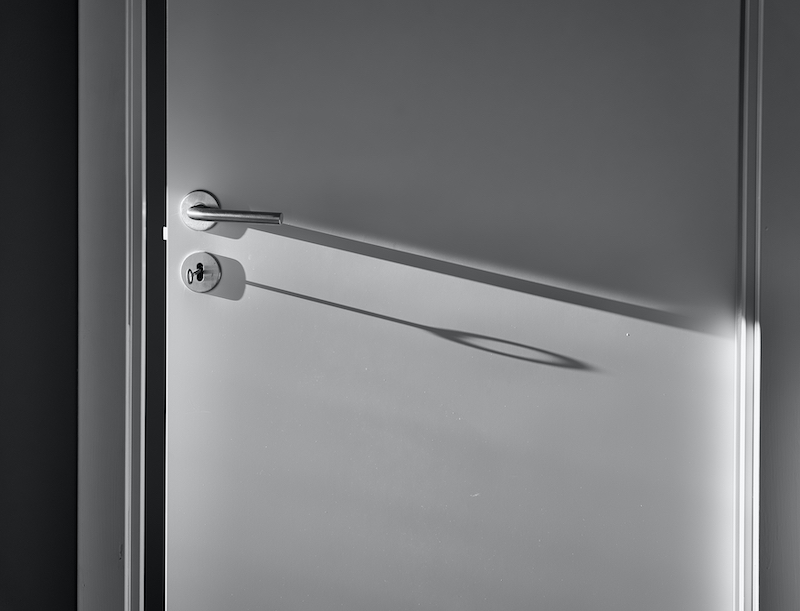While renters insurance covers many things, it won’t cover the cost of a locksmith if you lock yourself out of your apartment.
But certain other damages might be covered—or would be the responsibility of your landlord and their insurance.
Let’s delve into the intricacies of renters insurance and key points regarding coverage of locksmith services.
When does renters insurance cover locksmith fees?
Your renters insurance policy might cover locksmith fees if your keys are stolen and you’re unable to get back into your home. This is because theft is a “named peril” under your policy.
Beyond that, there aren’t many scenarios in which your policy would pay for a locksmith.
Your renters policy and its personal property coverage is primarily designed to protect your valuables against perils like theft, vandalism, certain water damage, and fire.
The door to your apartment, and its lock, are part of the physical structure of your building. That means most damage to your lock would be the responsibility of your landlord.
When doesn’t renters insurance cover locksmith fees?

The bad news: If you simply lose your keys and are locked out of your apartment, your renters insurance coverage likely won’t cover the cost of a locksmith to get you back in. You’ll end up paying this fee out of pocket.
- The same goes if your door door or lock is damaged during a break-in—it wouldn’t fall under your renters insurance.
- Since this is part of the physical rental unit, repairing it would be the responsibility of your landlord’s insurance.
- However, your renters insurance policy does cover the theft of your personal belongings. So if someone breaks into your place and makes off with your laptop and television, you could file a claim for those losses, and be compensated after paying your deductible.
What should you do if you’re locked out of your apartment?
First and foremost, don’t panic. Take a deep breath and think rationally—especially if it’s late at night, or if you’re locked out on your way home from a party.
Before calling a locksmith:
- Check if you have a spare key tucked away somewhere, or try to recall if you’ve given a friend or family member a copy of your key in the past.
- Check all other possible entrances to your apartment such as a back door, balcony door, or even windows, in case any are unlocked.
- Contact your landlord or property manager, as they may have spare keys and might be able to let you in.
If not, and you’ve exhausted all other options, then it’s time to call in the professionals.
How much does it cost to have a locksmith come and open your door?
On average, you might spend anywhere from $50 to $250, though this might be more over the holidays or during off-peak hours (like at 2AM, after you’ve stumbled back from the bar).
- Always ask for an estimate upfront. Additionally, locksmiths might require you to present ID to prove you reside at the address.
- When faced with a lockout, it’s tempting to call the first locksmith you find. However, it’s important to select a licensed and reputable locksmith. There are numerous cases of scams where individuals pose as locksmiths, only to overcharge or cause damage.
- Always check reviews, ensure the business has a physical address, and ask about pricing upfront to avoid unpleasant surprises. You can also ask if the locksmith is a member of Associated Locksmiths of America (ALOA).
Is your landlord responsible for locksmith fees?
Landlords are typically responsible for maintaining the building, which includes ensuring that locks are in working order. So if your locks break, or are damaged by vandals or burglars, they should take care of the repairs, and your landlord’s insurance would likely kick in.
Many landlords include clauses in the lease about locksmith services or malfunctioning locks. They might either cover the locksmith charges or impose a fee, especially if the incident happens during regular business hours.
Still, if you need a locksmith simply because you left your keys inside your rental—you’ll probably be stuck paying the fee out of pocket.
Why renters insurance is still key
Okay, so your renters insurance coverage might not cover the locksmith who treks out in the wee hours to open your door after you lost your keys at Punk Rock Karaoke.
- Renters insurance is an affordable safeguard for tenants, giving you personal property coverage for scenarios like vandalism or theft.
- Following a covered loss, the insurance company assesses the damage, factoring in your deductible (which is what you pay out of pocket before coverage kicks in).
- And remember, renters insurance cover extends beyond personal belongings, offering liability coverage if someone gets hurt in your rental unit.
While your landlord’s insurance covers property damage to the building, your renters insurance policy fills the gaps, ensuring your personal belongings and liability are protected.
You can get your 100% digital renters insurance quote by clicking the button below.
A few quick words, because we <3 our lawyers: This post is general in nature, and any statement in it doesn’t alter the terms, conditions, exclusions, or limitations of policies issued by Lemonade, which differ according to your state of residence. You’re encouraged to discuss your specific circumstances with your own professional advisors. The purpose of this post is merely to provide you with info and insights you can use to make such discussions more productive! Naturally, all comments by, or references to, third parties represent their own views, and Lemonade assumes no responsibility for them. Coverage and discounts may not be available in all states.




